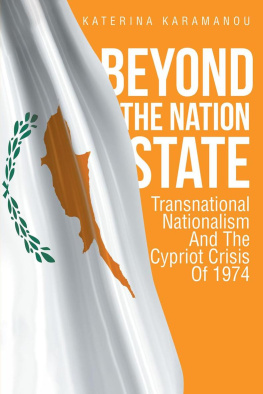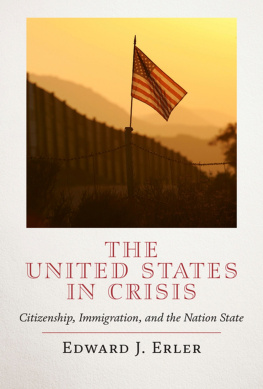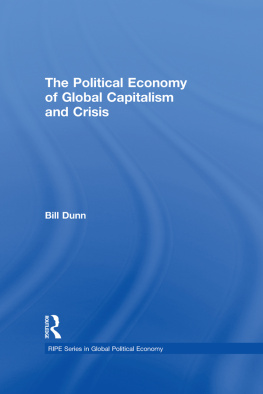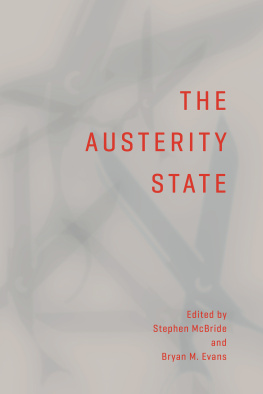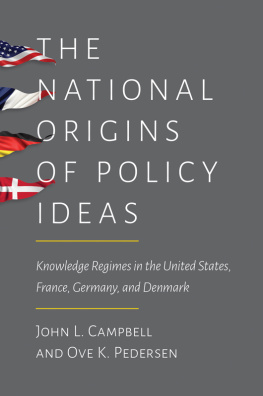THE PARADOX OF VULNERABILITY
Princeton Studies in Global and Comparative Sociology
Andreas Wimmer, Series Editor
The Paradox of Vulnerability
States, Nationalism, and the Financial Crisis
John L. Campbell
John A. Hall
PRINCETON UNIVERSITY PRESS
PRINCETON AND OXFORD
Copyright 2017 by Princeton University Press
Published by Princeton University Press,
41 William Street, Princeton, New Jersey 08540
In the United Kingdom: Princeton University Press,
6 Oxford Street, Woodstock, Oxfordshire OX20 1TR
press.princeton.edu
Cover art: Willem van de Velde (II), A Ship on the High Seas Caught by a Squall, Known as The Gust, c. 1680. Rijksmuseum, Amsterdam
All Rights Reserved
Library of Congress Control Number 2017945482
Cloth ISBN 978-0-691-16326-0
Paperback ISBN 978-0-691-16325-3
British Library Cataloging-in-Publication Data is available
This book has been composed in Adobe Text Pro and Gotham
Printed on acid-free paper.
Printed in the United States of America
10 9 8 7 6 5 4 3 2 1
CONTENTS
PREFACE
The initial hunch that pushed us to write this book derived from our personal experiences, first as tourists in Denmark and then as visiting professors at Copenhagen University and at the Copenhagen Business School. The responses that one of us received in the 1970s when asking about the character of Danish politics all stressed factors having to do with social class, seen as the underpinning of social democracy. There is, of course, truth here, but the image that was often presented, probably as the result of Marxist influences in both Danish popular and academic life, suggested a society of great conflict, torn apart by visceral hatreds. It did not feel like that then and it certainly has not felt like that to us since the early 1990s when we both began spending more time in Denmark. Danes seemed to be Danes, highly similar and blessed with a huge consensual background that kept conflict within bounds. Perhaps this was our reaction because of our basic knowledge of the factors that created really vicious conflict within the deeply divided societies of Europe, such as Yugoslavia and Poland, during earlier times. What mattered in these countries was the layering of conflicts, to use Ralf Dahrendorfs expressionabove all, the way in which class conflicts in combination with tensions among nationalities could create real social dynamite, as Ernest Gellner had so brilliantly demonstrated.
It seemed that the Danes had forgotten the national homogeneity of their society and were unaware of how much this influenced their politics. The likelihood that a consensual background mattered then made us suspicious of the claim made in 1990 by Michael Porter, guru of the Harvard Business School, that Denmark was on the rocks, bound to decline, adrift in a sea of conflict. To that end, we began to ask whether our findings about this small culturally homogeneous society might be generalizable to other small nation-states in the advanced capitalist world.
There are several competing indices of country competitiveness and national well-being. Small and nationally homogeneous states continually feature at the top end of all such lists. But statistical associations alone may mislead. What matters is the discovery of mechanisms that show real causality to be at work. Concentration in this book on Denmark, Ireland, and Switzerland, the latter often falsely taken to be so culturally diverse as to lack a shared national identity, has allowed us to demonstrate that small nation-state vulnerability to external forces can strengthen national identity, social partnership, and institutions in ways that lead to resilience and prosperity. This is the paradox of vulnerability. By developing detailed historical case studies of these countries this book goes beyond plausible generalization to the identification of processes and mechanisms. It does so by focusing relentlessly on the ways in which these small nation-states responded to a single event, namely the international financial crisis that began in 2007. Analysis of their styles of crisis management, of their ability to navigate when hit by a sudden squall, has proved to be deeply revealing.
Even before we start, it is well to issue warnings. Nobody should think for a second that we wish to make all societies culturally homogeneousor, for that matter, small. Switzerland demonstrates that cultural heterogeneity is no barrier to the creation of a strong sense of national identity that allows for high levels of cooperation. We abhor cultural cleansing of every kind, and know full well that a major problem facing the politics of the world is that of creating polities in which different nations and ethnicities can cooperate harmoniously. Neither should anyone imagine that we think that the only route to economic and social success is by means of this particular type of political economy. Capitalist society is diverse, and countries of very different characters within it have managed to swim successfully within its bounds. The claim that we will make is accordingly limited, namely that the combination of national homogeneity and vulnerability associated with small size can be a particularly beneficial recipe for success within todays world political-economic system. But much remains to be said about that can be!
The opening chapter is theoretical and conceptual. The core of the book comprises detailed comparative historical analyses of Denmark, Ireland, and Switzerlandall small nation-states but with important differences among them. The conclusion offers shorter examinations of further cases, before offering more general reflections.
Dahrendorf 1959; Gellner 1983.
Porter 1990.
Campbell et al. 2006.
Katzenstein 1984, 1985.
See, for instance, recent editions of the United Nations Human Development Report or the World Economic Forum Global Competitiveness Report.
Patsiurko et al. 2012, 2013.
ACKNOWLEDGMENTS
We have received many helpful comments on the arguments presented in this book. We thank the following, and apologize to those whose names we have accidentally forgotten: Michael Allen, Tassos Anastassiadis, Denise Anthony, Eddie Ashbee, Lars Bille, Mark Blyth, Martin Carstensen, Paolo Dardanelli, Francesco Duina, Brian Girvin, Niamh Hardiman, Eric Helleiner, Jason Houle, Jason Jensen, Erik Jones, Peter Katzenstein, Deborah King, Bill Kissane, Matt Lange, Kathryn Lively, Brendan OLeary, Sinia Maleevi, Janice McCabe, Sen Riain, Ove Pedersen, Martin Rasmussen, Len Seabrooke, Kathy Sherrieb, Patrice Siegrist, Michael Smith, Thomas Soehl, Cathal Slack, Emily Walton, Andreas Wimmer, and seminar participants at the Copenhagen Business School, Copenhagen University, McGill University, Dartmouth College, the University of British Columbia, Hamburg University, the University of Salzburg, and the South China University of Technology. Special thanks go to Natalka Patsiurko, who contributed significantly to the analysis and data collection in work leading up to this book, and to two excellent anonymous reviewers from Princeton University Press. Eric Crahan, our editor, did a fine job ushering the book through the review and production processes. We are indebted above all to all those who agreed to be interviewed for this project, several of whom also offered comments on particular chapters.
Funding for this project was provided by the Nelson A. Rockefeller Center for Public Policy at Dartmouth College, the Department of Business and Politics at the Copenhagen Business School, Canadas Social Science and Humanities Research Council, and McGill University. The John Sloan Dickey Center for International Understanding at Dartmouth and the Saxo Institute at the University of Copenhagen held intensive workshops on the entire manuscript from which we benefited enormously.


